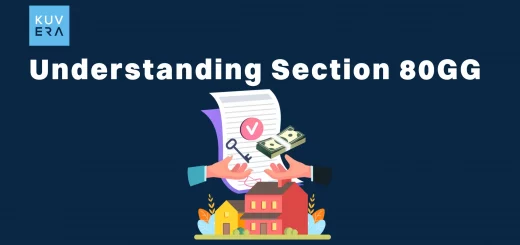The mutual funds industry is one of the fastest-growing industries in the Indian investment sector. They have become immensely popular amongst the newer generation of investors.
The asset under management by the mutual fund as on July 2012, was $7.30 trillion, this increased 5 times in the next 10 years to $37.75 trillion by 31st July 2022.
This shows that investment in mutual funds is constantly increasing and is expected to grow in the future as well. This is also because mutual funds are one of the most beginner-friendly investments out there.
What are mutual funds?
A mutual fund is basically when you pool money from a lot of investors with common investment objectives and invest it in a diversified portfolio. This fund is managed by professional fund managers.
These fund managers work for Asset Management Company or AMC. Each AMC will have different mutual fund schemes with different investment objectives. You will have to choose the scheme you want to invest in depending on your investment goals.
The money is invested in securities like stocks, bonds, money market instruments, and other assets depending on the investment objectives of the investor. Click here to read about the various types of mutual funds available in India and their benefits.
Formation and history of mutual funds in India
The government of India along with the Reserve bank established the first mutual fund in India in 1963 called Unit Trust Of India (UTI).

Initially, it was regulated by the RBI but in 1978, Industrial Development Bank of India (IDBI) took over the regulatory role of UTI.
The purpose of UTI was not just to introduce the concept of mutual fund in India but also to encourage small investors to take active participation in the investment process.
The government introduced many tax rebates for investing in mutual funds and it worked. By 1988, UTI was managing ₹ 6,700 crores.
Up until this time, UTI was the only entity operating with mutual funds. But, due the success of the mutual funds many public sector banks and insurance companies also started demanding the government to be allowed to have their own mutual fund division.
As a result, SBI was the first ‘non-UTI’ entity to have its own mutual fund in June 1987. By the end of 1993, the Asset Under Management (AUM) by the mutual fund industry was ₹ 45,000 crore.
After 1991, when the government liberalized the economy, the private sector started entering the mutual fund industry as well. During this time Securities Exchange Board Of India or SEBI was also set up to protect the interest of Indian investors.
In 1999, the government exempted all dividends earned from mutual funds from income tax.
While the mutual funds industry has experienced setbacks over the years like the recession of 2009, it has also been able to recover from it.
What makes mutual funds better than other investments
The major reason why mutual funds became so successful in India is large that it is one of the most beginner-friendly investment options available. Here are a few other reasons which make mutual funds a good investment:
- The government of India along with SEBI has constantly encouraged the growth of the mutual fund industry and promoted it beyond tier I cities.
- Mutual funds are also highly regulated by SEBI and there are stringent laws in place to protect the interest of investors.

- They are managed by professional fund managers who are legally required to work for the benefit of the investors. This means individual investors don’t have to put in time and effort to buy, sell or monitor investments.
- Open-ended mutual funds can be easily redeemed if there is an emergency need for funds. The amount will be credited to your account within 3-4 business days. However, if the mutual fund is a close-ended mutual fund, then the amount can only be withdrawn at the time of maturity.
- Mutual funds qualify for tax benefits up to ₹1,50,000 under section 80C of the Income Tax Act. Long-term investments in mutual funds are very tax efficient.
- They are affordable as compared to other forms of investments. You can start a SIP at ₹100 only.
- One of the best advantages of mutual funds is the easy diversification it offers. You can easily diversify your investments across equity, debt, and other types of investments which decreases the risk of losses significantly.
- You can also easily invest in mutual funds online these days. Here’s a detailed guide on how you can invest in mutual funds online.
Best performing AMC in India
Asset Management Companies (AMC) are the companies that handle all the money of the investors and employ professional fund managers to manage various mutual fund schemes. A trustworthy AMC is crucial to safeguard your investment interest. Here are some of the best-performing AMCs in India:
SBI Mutual Fund
ICICI Prudential Mutual Fund
HDFC Mutual Fund
Reliance Mutual Fund
Nippon India Mutual Fund
Current status of Mutual funds in India
Mutual funds have seen a tremendous growth post demonetisation. Various awareness programmes like ‘Mutual funds sahi hai’ by AMFI and the invention of SIP (Systematic Investment Plan) have created awareness and a pattern of disciplined investment amongst the investors.
Small and medium level investors have benefited greatly due to mutual funds and even created substantial wealth over the years. An investor with only ₹1000 investment per month starting from the 1990s would have created about ₹1 crore of wealth by now.
The mutual fund industry is expected to grow manifold in the coming years. With continuous support from SEBI and a new generation of financially aware and technologically savvy investors the golden days of mutual funds in India are yet to come.
Read more: Zen And The Art Of Investing
Watch/hear on YouTube: Stocks Vs. Mutual Funds, Which is better?
Start investing through a platform that brings goal planning and investing to your fingertips. Visit Kuvera.in to discover Direct Plans and Fixed Deposits and start investing today.
#MutualFundSahiHai #KuveraSabseSahiHai!











